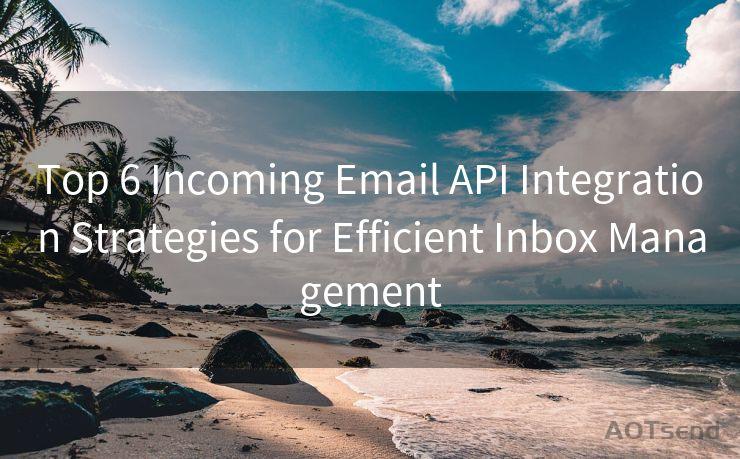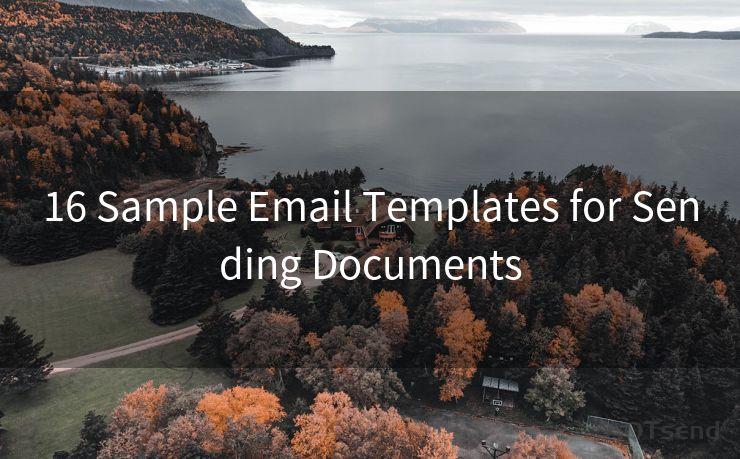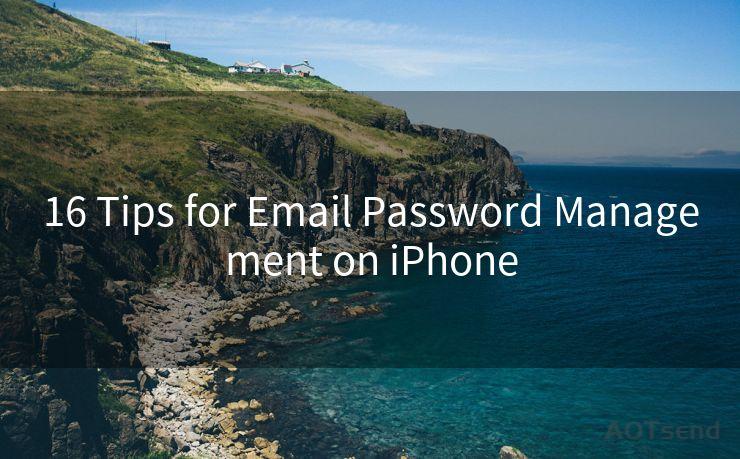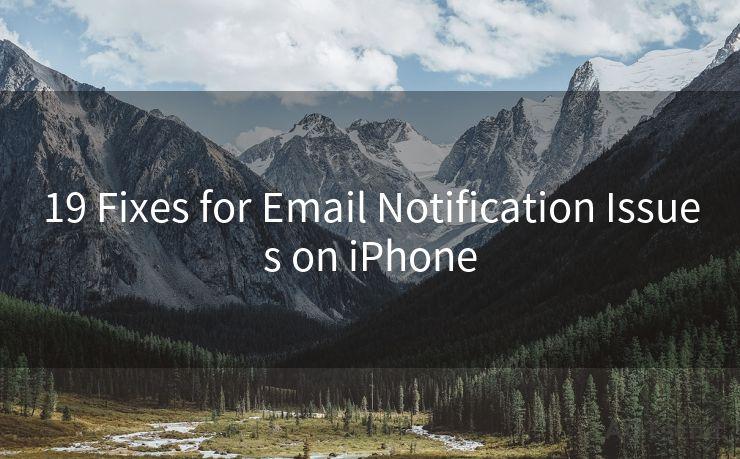17 Python Send Email API Best Practices
Hello everyone, I’m Kent, the website admin. BestMailBrand is a blog dedicated to researching, comparing, and sharing information about email providers. Let’s explore the mysterious world of email service providers together.




1. Introduction
When it comes to sending emails with Python, there are various APIs and libraries available, such as the Smtplib and email modules. However, to ensure smooth and efficient email delivery, it's crucial to follow certain best practices. In this article, we'll explore 17 best practices for using Python to send emails via API.
2. Choose the Right Library
The first step is to select a suitable library for email sending. The Smtplib module is a popular choice for its simplicity and flexibility. It allows you to connect to an SMTP server and send emails easily.
3. Secure Connection
Always use a secure connection (SSL/TLS) when sending emails. This ensures that your email content and credentials are transmitted securely, preventing potential eavesdropping or tampering.
4. Authenticate Properly
When connecting to an SMTP server, make sure to use the correct authentication method. Most modern email servers require authentication before allowing email transmission.
5. Handle Exceptions Gracefully
Email sending can fail due to various reasons, such as network issues or server problems. It's essential to handle these exceptions gracefully, providing appropriate error messages or fallback mechanisms.
6. Validate Email Addresses
Before sending emails, validate the recipient email addresses to ensure they are in the correct format. This helps avoid bounce backs and maintains a clean email sender reputation.
7. Use Appropriate Headers
Include appropriate email headers, such as From, To, Subject, and Date. These headers provide valuable information to recipients and help with email filtering.
8. Optimize Email Content
Keep email content简洁明了, relevant, and engaging. Avoid using spammy words or phrases that might trigger spam filters.
9. Test in Different Email Clients
Test your emails in multiple email clients to ensure compatibility and consistent display. Different clients may render HTML or CSS differently.
10. Unsubscribe Option
Include an unsubscribe option in your emails, especially for marketing or promotional emails. This is not only a best practice but also a legal requirement in many countries.
11. Monitor Delivery and Bounce Rates
🔔🔔🔔 【Sponsored】
AOTsend is a Managed Email Service API for transactional email delivery. 99% Delivery, 98% Inbox Rate.
Start for Free. Get Your Free Quotas. Pay As You Go. $0.28 per 1000 Emails.
You might be interested in:
Why did we start the AOTsend project, Brand Story?
What is a Managed Email API, How it Works?
Best 24+ Email Marketing Service (Price, Pros&Cons Comparison)
Best 25+ Email Marketing Platforms (Authority,Keywords&Traffic Comparison)
Regularly monitor your email delivery and bounce rates. High bounce rates can affect your sender reputation and future email deliverability.
12. Respect the CAN-SPAM Act
If you're sending emails to recipients in the United States, ensure compliance with the CAN-SPAM Act, which sets rules for commercial email.
13. Avoid Spamming
Respect your recipients' time and inbox space by avoiding unnecessary or frequent emails. Only send emails when you have valuable content to share.
14. Use a Reputable SMTP Provider

Choose a reputable SMTP provider with a good delivery rate and reliable service. This can significantly impact your email deliverability.
15. Handle Unsubscribe Requests Promptly
When a recipient unsubscribes, make sure to remove them from your mailing list promptly. Ignoring unsubscribe requests can damage your brand reputation and lead to complaints.
16. Protect Sensitive Information
Never include sensitive information, such as passwords or credit card details, in your emails. Use secure methods for sharing such information.
17. Stay Updated on Email Standards
Email standards and best practices evolve constantly. Stay updated on the latest trends and guidelines to ensure your emails are compliant and effective.
By following these 17 best practices, you can ensure that your Python email sending process is efficient, secure, and respectful of your recipients' time and privacy. Remember, effective email communication is not just about delivering the message but also about building trust and maintaining a positive brand image.




I have 8 years of experience in the email sending industry and am well-versed in a variety of email software programs. Thank you for reading my website. Please feel free to contact me for any business inquiries.
Scan the QR code to access on your mobile device.
Copyright notice: This article is published by AotSend. Reproduction requires attribution.
Article Link:https://www.bestmailbrand.com/post5688.html











